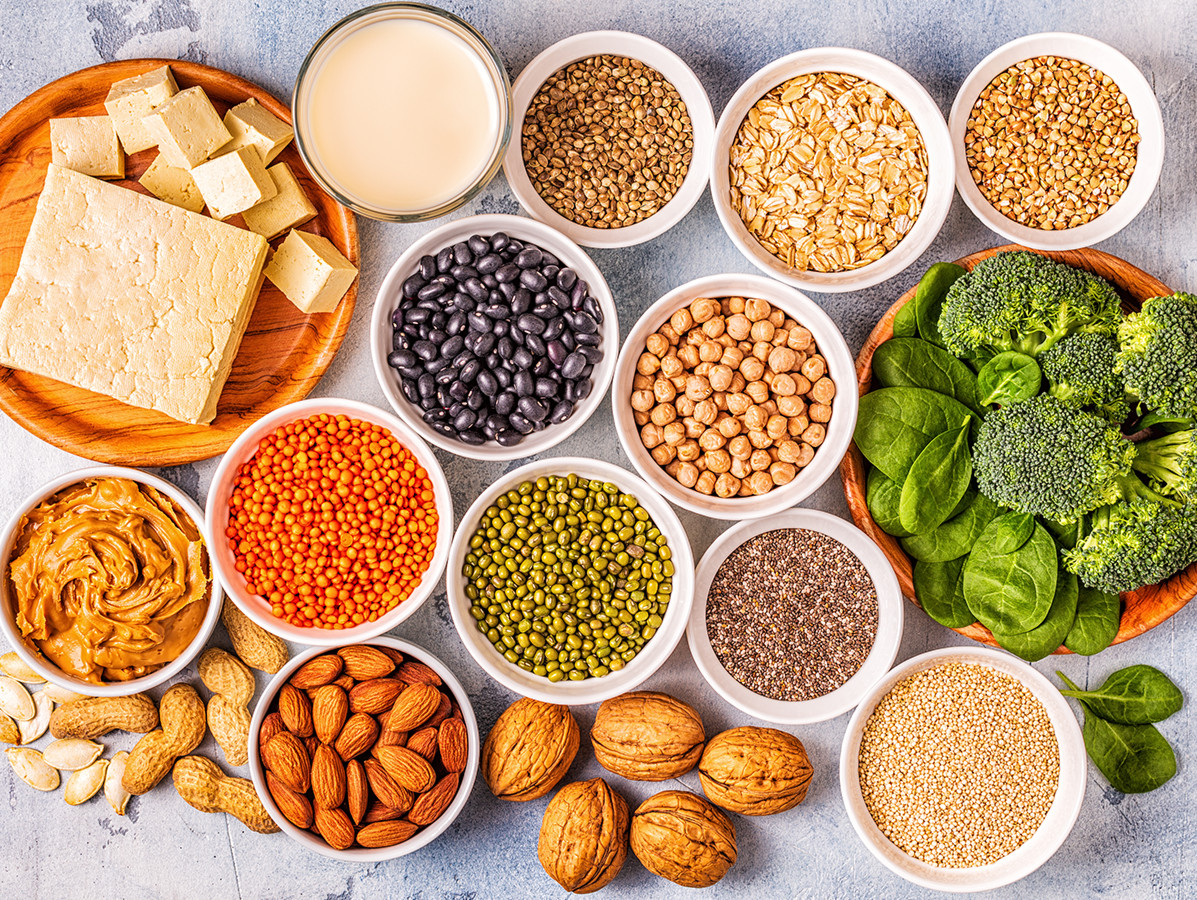
There are still many misconceptions about plant-based food in the Netherlands. This is evident from research commissioned by Upfield. Many people in the Netherlands incorrectly believe that vegetable alternatives to meat, fish or dairy products are always highly processed (29%), that a plant-based diet is difficult (28%) and more expensive than a more meaty diet (28%). Others are under the impression that a plant-based diet leads to iron deficiency, does not provide enough energy and cannot be combined with sport. Besides these myths about plant-based food, the study among 1097 adults also revealed confusion about healthy fats. Almost half (48%) do not know the difference between saturated and unsaturated fats. 1 in 5 (21%) think that you can lower cholesterol with saturated fats in your diet. This lack of knowledge can lead to other false assumptions: no less than 39% think that creamy butter offers many health benefits to the body.
More vegetables and less meat: in the Netherlands, increasing attention is being paid to the protein transition, i.e. a shift from animal to (more) vegetable-based consumption of proteins. However, some Dutch consumers have negative ideas about plant-based food:
1. Vegetable alternatives to meat, fish or dairy products are always highly processed (29%)
2. A plant-based diet is difficult (28%)
3. A plant-based diet is more expensive than a meat-based diet (28%)
4. A plant-based diet is monotonous (22%)
5. A plant-based diet leads to iron deficiency (21%)
6. A plant-based diet does not provide enough energy (19%)
7. A plant-based diet is incompatible with (top) sport (18%)
8. Plant-based meals are not filling (13%)
9. Plant-based food has no taste (9%)
The research takes a closer look at a vegetable product that has been in the Dutch kitchen for 150 years: margarine. Although 74% of the Dutch people state that they usually have it in the fridge, no less than 43% do not know what margarine is made of. 1 in 3 Dutch people (34%) incorrectly believe that it is made from milk. Strangely enough, 21% think that cream butter is plant-based. One explanation may be the negative perception people have of processed food. For example, 33% incorrectly believe that processed foods always contain unnecessary additives and 45% that processed foods always contain artificial ingredients. Information and advice on nutrition is mainly obtained from the Internet (37%) and TV programmes on nutrition and cooking (30%), more than from the Dutch Nutrition Centre (27%). In addition, 24% almost never look at the labels of food products to find out what ingredients are in a product. The lack of knowledge about what we eat can have a detrimental effect on our health.
Although 82% admit that it is important to make environmentally conscious choices when buying food, a lack of knowledge seems to get in the way of sustainable purchasing. Indeed, more than half (56%) do not know whether margarine or cream butter has less impact on the climate. "This while the impact between vegetable and dairy is quite different," says Marleen Koning, communications manager at Upfield. "Compared to dairy products, our plant-based margarines and spreads result on average in a 70% smaller carbon footprint, two-thirds less land use per year and half less water." Increased awareness could lead to more sustainable choices: in fact, 60% of those surveyed would consider buying margarine instead of butter in future if they knew that margarine is better for the environment.
Source: Upfield